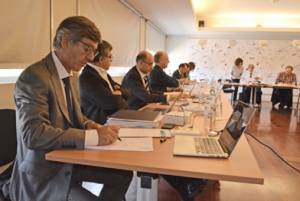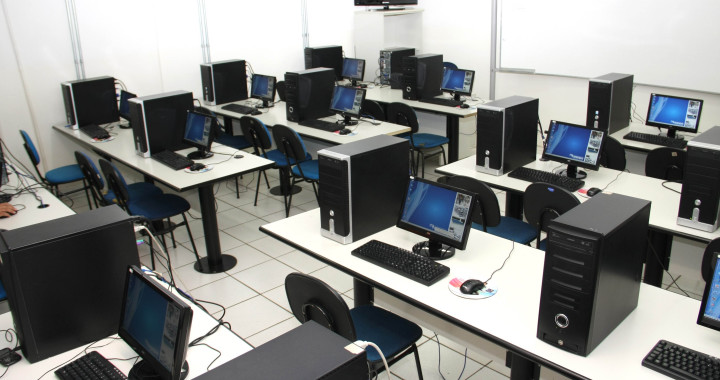INESC TEC’s General Council elected a new management, named INESC TEC’s Board of Directors (CA). The Board, which replaces the previous Board, is composed of the President and eight Directors, establishing a pioneering governance model among the Associated Laboratories in the country.
In a statement to INESC TEC employees, President José Manuel Mendonça states that “this change in the governance model of INESC TEC is related to the will to introduce a necessary generational renewal in our management bodies, combined with an essential period of ‘ passage of testimony ‘”.
INESC TEC’s Board of Directors is made up of José Manuel Mendonça (President), Mário Jorge Leitão, João Peças Lopes, Vladimiro Miranda, Luís Carneiro, Gabriel David, João Claro, Bernardo Almada Lobo and Rui Oliveira (Administrators).
An Executive Committee was chaired by José Manuel Mendonça, whose Executive Directors are Mário Jorge Leitão and Luís Carneiro.
At the General Council meeting on the 8th of June, changes were still decided in the Scientific Council, with the entry of new members: Lia Patrício, João José Pinto Ferreira and João Barroso as new members. Manuel Matos maintains the position of President.
The table of the General Council also undergoes modifications. Rosário Gambôa, President of IPP, becomes First Secretary. The President of the General Council, Sebastião Feyo de Azevedo (Rector of U.Porto), and the Second Secretary, António Ferreira (FEUP), hold the same positions.
These changes in the Associative Bodies do not modify INESC TEC’s mission to serve as an interface between the academic world and the business world of industry and services, as well as the public administration. U.Porto also maintains the status of majority member of INESC TEC (INESC and the Polytechnic Institute of Porto are also members).


